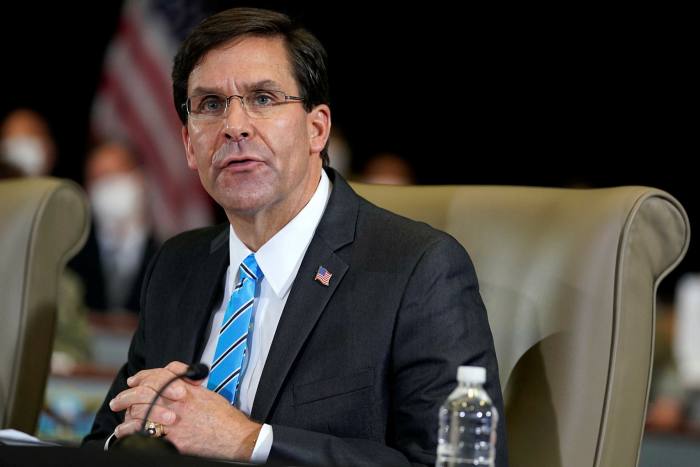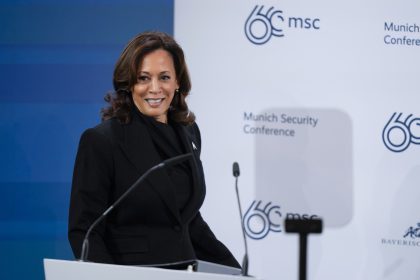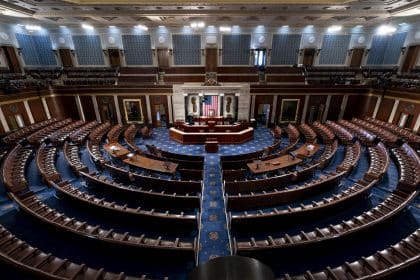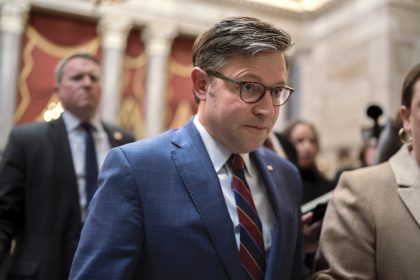Former Defense Secretary Esper Claims ‘One China a Complete Fallacy’

WASHINGTON — Fresh from a transatlantic delegation visit to Taiwan on behalf of the Atlantic Council and under the auspices of the Taipei Economic and Cultural Representative Office, former U.S. Secretary of Defense Mark Esper is “increasingly worried about Chinese actions” and convinced that China may “make a move soon” on the island.
But, according to his personal insights gleaned from the trip, any visit planned by House Speaker Nancy Pelosi, D-Calif., should go ahead without concern for maintaining the status quo since Esper contends that the “‘One China’ policy has outlived its usefulness.”
Fortuitously timed in advance of Pelosi’s potential diplomatic visit next month, Esper, along with former Italian Ambassador to the North Atlantic Treaty Organization Stefano Stefanini and Council Senior Vice President Barry Pavel, met with senior Taiwanese government leaders as well as Kuomintang (Chinese Nationalist Party) leaders, corporate executives, and think-tank representatives in Taipei to discuss pressing security and economic issues that will shape the future of Taiwan as well as the outlook for the region moving forward.
“[It was] not just an important trip, but a very timely trip given all that is unfolding each day,” Esper said, adding that, “It’s important that our lawmakers take these trips, so they can come back [with similar knowledge],” Esper said during a special presentation of the Atlantic Council’s Front Page.
Beijing considers Taiwan a renegade province that it has long wanted to reunite with its mainland. This effort has become stronger under Chinese leader Xi Jinping’s vision, however, which calls for a revival or “Great Rejuvenation” of the Chinese nation alongside rising international influence.
Taiwan, on the other hand, asserts its sovereignty.
Washington, which does not have official diplomatic ties with Taiwan, acknowledges China’s position that there is only one Chinese government while continuing to sell arms to bolster Taiwan’s self-defense.
“‘One China’ is a complete fallacy at this point — nobody believes in it,” Esper insisted. “We have never recognized that [there is only one legitimate government of China], we have just recognized their position on that.”
Pelosi’s visit, which would make her the first speaker of the House to travel to Taiwan since Newt Gingrich in 1997, would undoubtedly signal U.S. support of Taiwan, and Beijing has threatened to retaliate, but Esper does not believe a military conflict would come of it.
Despite Taiwan being the biggest potential flashpoint that could lead to armed conflict between the two superpowers, Esper contends that Pelosi’s visit would change nothing and China is just blowing hot air.
“We should not be self-deterred … from authoritarian states like Beijing rattling the saber … and take these declarations too seriously,” Esper said. “We need to stand up to these bullies.”
If Beijing cites Pelosi’s proposed trip as changing the status quo between China and the U.S., Esper called to mind Gingrich’s previous visit as well as President Biden’s “surprisingly candid” admission — three times since August 2021 — that the U.S. would come to Taiwan’s aide, if necessary, on the basis of the Taiwan Relations Act. He also pointed out China’s increased incursions, provocative military activity in the Taiwan Strait, and continued heated rhetoric.
“It’s Beijing that is trying to change the status quo,” Esper said. “To me, it’s China that is undermining the ‘One China’ policy as it has been understood for the last 50 years.”
Calling for the U.S. to preserve its free trade agreement with Taiwan and “stop this silliness about who will travel to Taipei,” Esper said the delegation he recently led to the island focused on key priorities to prepare Taiwan for future expectations, which he said must include the stockpiling of energy supplies, weapons and ammunition; ensuring access to essential materials and logistics; and building a resilient and effective communications network.
Calling it “almost inevitable” that Xi Jinping will win an unprecedented third term as general secretary of the Communist Party in November, and possibly even get the title of chairman (not seen since Mao Zedong), Esper predicted that Xi may then feel more free to pursue his objectives on Taiwan as well as islands in the South China Sea, its claims on fishing and mining areas and its territorial views over the Himalayas.
“[Xi] could reach a new level, and I think that’s a concern for everybody,” Esper said. “China has a grand plan to displace the U.S. by 2049 … and impose on the world their own views of how [the world] should be.”
Kate can be reached at [email protected]























